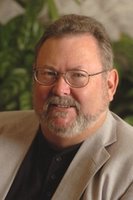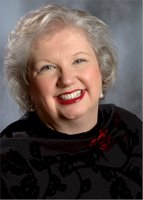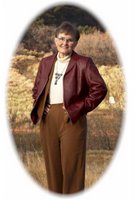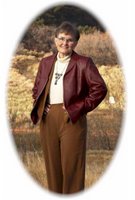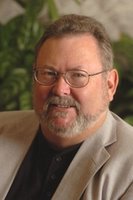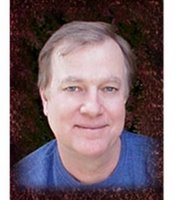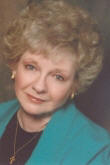
There seem to be lots of questions floating around about contests and awards--especially at this time of year--and several have made their way into my e-mail. If this entry sounds vague and even seems to contradict itself in places--it's because the replies to these kinds of questions almost always end up being as subjective as...well, their subject.
In truth, this entry is a kind of "collage" pulled from things I've written over the years regarding awards in the CBA publishing industry. A caveat (or two) here: I have no ax to grind about contests. Without going into details,this being a personal issue, my books have not been entered in any award events for several years now--at my request. Nor do I enter them myself.
That wasn't always the case: the first novels I wrote were entered in the usual contests and did include a few "winners." But some years ago, the Lord "impressed" it upon me to refrain from the practice in the future. That was several books ago. I'd like to be able to say that God "invited" me to enter into an agreement with Him about this contest business, to negotiate it on a book-by-book basis--but the truth is that there was no "invitation" involved. It was a straight-out admonishment, no "ifs" or "ands." If I knew the reason or reasons for this, I'd probably not talk about them anyway--but the fact is that I don't know His reasons--nor do I need to know them.
I will admit that I'm aware of some of the benefits to come out of it--one big one being that it gave me an incredible sense of freedom. It allowed me to write without ever wondering if my work was "award material." It also made it wonderfully easy for me to cheer all my writer-friends and other contestants on, rejoicing with them when they won...without ever being tempted to wonder why my book
didn't win.
So-–all that to say that I hope you can understand that my only interest in posting this entry is to try to provide a personal perspective on the subject, and at the same time attempt to answer some of the questions writers and aspiring writers occasionally ask about it. I believe the real heart of this subject is how we view awards and how we allow them to affect us. If I didn't think that it's a a critical issue for writers to settle on an individual basis, I wouldn't make the effort to write an entry around it.
I am
not, in any way, suggesting that my "approach" to awards is for others. We all know that God takes us in different directions, by different paths, to different places, and I believe that's the case with awards. Nor do I believe, and would never suggest, that there is anything inherently wrong with contests, although I don't view an award in
itself as a worthy goal for an author to work toward. If you're aware that you have a problem in this area, though--if you continually struggle with your attitude toward the issue--why not commit it to God and work it out with His guidance and in His will?
What many writers and aspiring writers seem to want to know about the subject boils down to this: do awards help sell books? Most editors don't seem to think they do. I'm not basing this on any kind of "poll," but merely on discussions I've had with editors and publishers, authors and booksellers over the years. A number of award-winning authors have indicated that their awards haven't affected their sales in any measurable way. Naturally, there are some who would differ and probably can offer evidence to support their conclusions, at least in certain cases.
The reality is that most readers--and even some bookstore owners--don't care about awards. Many don't even
know about them, or if they do, they have no opinion as to whether they're important or not. So awards aren't likely to influence their buying habits.
But on the other hand, as one author recently pointed out, although awards may not affect an author's consumer sales, they can make a difference to an acquisitions editor or a publisher, enabling an award-winning author (or the author's agent) to more easily place that author's work. That's definitely something to consider, especially in today's crowded and highly competitive publishing industry.
Another possible benefit: awards just might help to foster the desire for excellence in some authors...and among certain publishers as well. Earlier I said that I don't believe an author should work toward an award as the ultimate goal. But some authors need more encouragement than others, sometimes in the form of recognition, so an "eye on the prize" might serve, for a few, as a source of that encouragement; and so long as the award itself doesn't become the primary motivation for striving for excellence, what's the harm?
I've also witnessed some of the negative consequences, however, that can come out of this whole awards thing: disappointment, discouragement, and, much worse, even despair on the part of certain authors who tend to see their lack of awards as a judgment on the quality of their writing. I have personally talked with or exchanged correspondence with authors who were tempted to throw in the towel and leave publishing altogether...often because this year, again, their books were overlooked. They begin to take it for granted that the quality of their work is lacking, that they shouldn't be writing at all.
You might be surprised at the number of widely published and/or critically lauded authors who feel "rejected" when their work isn't recognized with an award. But those reactions
shouldn't surprise us: the fanfare and publicity and emphasis--by some--placed on awards make it nearly impossible for an author to ignore these events, and he/she is often deeply hurt and discouraged by the "failure" to win, or at least to be chosen as a finalist. A resulting loss in self-esteem and self-confidence, frustration, and depression are all too real in some cases.
One author-friend made the comment that winning an award could be accompanied by its own set of problems. For example, she said that once she had won an award, it really bothered her when the event came around the next year and she
didn't win. She became anxious, worrying about why her work wasn't deemed as good as it had been the year before.
Winning or losing, it's obviously important to see contests for what they are and react to them accordingly. A group of people--judges--from different areas of publishing read lots of manuscripts and, although we hope they'll be impartial, their own personal reading taste can not help but enter into their decisions. We'd also like to think those judges will be reading in their particular areas of "specialization," but that's not always so. Finding enough qualified judges for any given award event is no easy process, and as is the case with any other competitive event, some judges are simply going to be more qualified and more experienced than others. But no matter how many are selected, and no matter how qualified-–or not--they may be, the reality is that this is a highly subjective process. (Even the matter of qualification is a "subjective" one.)
We also have to consider this: one of the judges who reads your work may love it and consider it the best work he/she has seen in publishing for years. Another judge may be less enthusiastic, or might see the "promise" in your writing but not consider it "award-winning" material just yet. Several eyes will see your work, and you can't assume that their individual assessments will form a collective "yea." That might happen sometimes–but it's not likely to happen all the time.
Unfortunately, not all judges are able to approach the process without at least a measure of personal bias, and a few have even gone public with their "observations" about certain contest events. It's very difficult to totally wipe out long-held opinions and convictions about certain things you either like or don't like. That's asking quite a lot--perhaps it's even unreasonable.
I've served as a contest judge. I know how extremely difficult it is to remain entirely impartial, no matter the area in which one is offering an opinion. It's a significant responsibility, and one with which I'm never been completely comfortable, mostly because of that responsibility.
I don't mean to bludgeon you with this, but I'm going to repeat it again: this is a highly
subjective experience. Don't allow it to become the impetus for your writing efforts. Don't view it as the end-all judgment of your work. If you want to grant that kind of judgment to anyone, for goodness' sake, listen to your editor. He or she has worked with you, knows your work, is most likely well-acquainted with the genre in which you write, and is in the best position to offer objective criticism or praise.
Find a way, whatever works best for you, to keep awards from becoming too important. Remember that contests are usually an annual event, and they're quickly forgotten by everyone except--unfortunately--those who didn't win. But whether you win or don't win, hold this thought: the only award that's truly important, the only one that's worth winning, and the only one that ultimately will not be entirely forgotten is the one for which we're all striving: the words of our Savior (who is, after all, the one, and the only truly qualified judge of our efforts)--"Well done, good and faithful servant."
BJ Hoff is the author
of A Distant Music, An American Anthem,
and An Emerald Ballad.
http://www.bjhoff.com


